Now all students with a negative test can book study seats and group rooms at CBS – and there is plenty of room
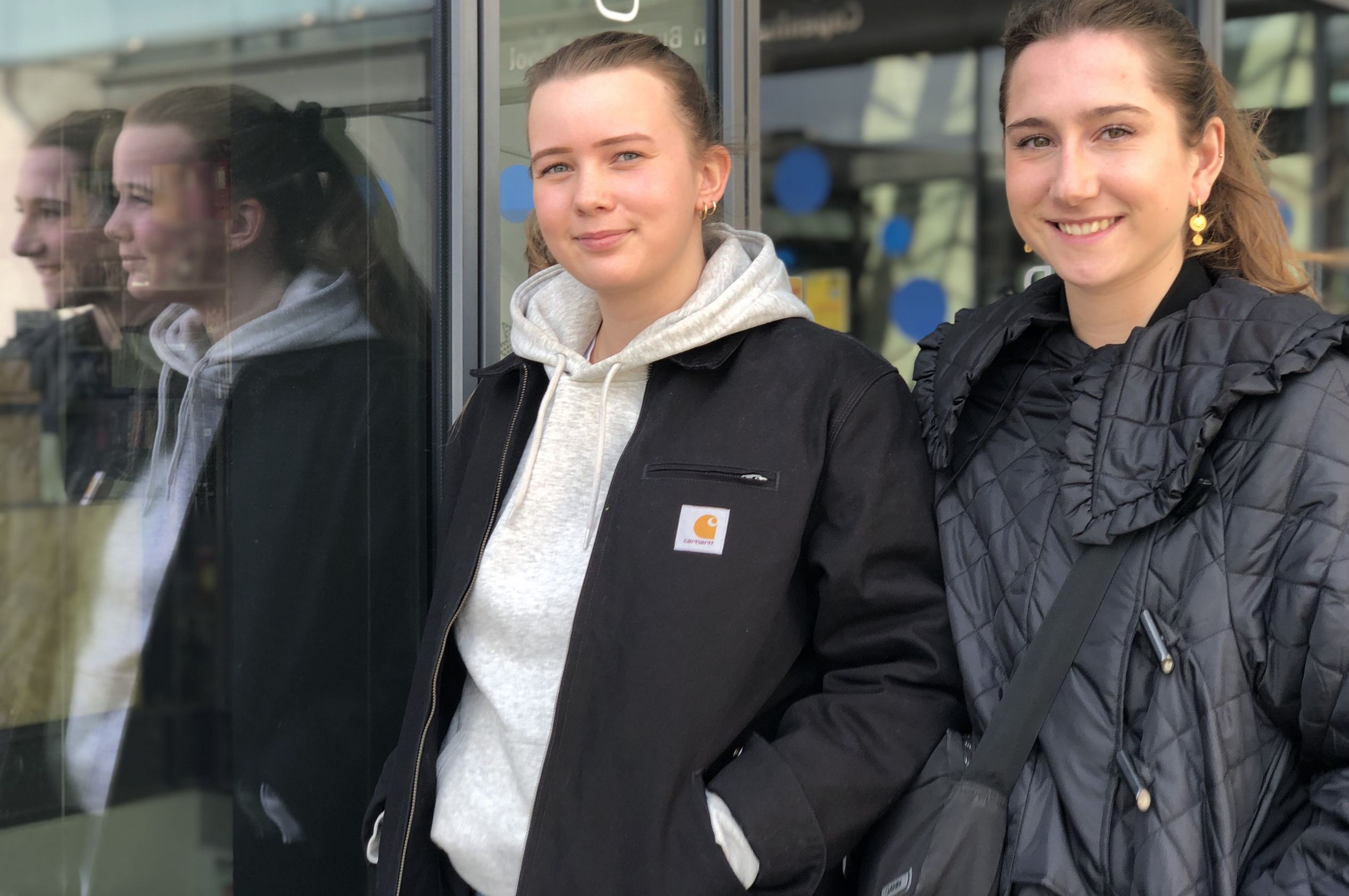
Amanda Andresen and Laura Bech had their first day back at CBS on April 15. They did a test in CBS' test center before going to their booked study seats. (Photo: Anne M. Lykkegaard)
The new CBS test facility can test 1,000+ students and employees a day if necessary. Amanda Andresen and Laura Bech were tested before a study session at CBS Library. “It's amazing to be back,” say the two students.
On the grassy area between Solbjerg Plads and the Wedge, a white tent takes up 700 square meters. The tent is CBS’ new quick-test center, which opened on Monday April 12 for CBS staff and students.
In total, the tent can hold 50 people, and CBS can test 100 every hour or 750 a day, during opening hours 8 to 15. With expanded opening hours, more than 1,000 can get tested a day. But when I visit the tent with René Steffensen, Director of Campus Service at CBS, and Allan Stockfleth Olsen, Team Coordinator at Campus Service and test center manager, it is not exactly crowded.
In fact, only René Steffensen, one other person and I have booked a test at 13:00 on April 15.
“Since Monday April 12, we have tested about 300 people, and that is about what I would have expected. One can hope that we will see more test bookings now that all students can book study seats and group rooms on campus,” says René Steffensen and adds:
“Right now, we often have more supervisors in the test center than students needing to be tested on a half-hour basis , and we want the students to come back.”
At the moment, a negative test that is no more than 72 hours old is required to access the CBS campus, which is open to certain groups of employees and now all students who have booked a study seat or group room.
At the beginning of the week, only students with special needs, first-year students and students writing their master’s theses were allowed to book study seats and group rooms at CBS, but since the study seats and group rooms were not fully booked, the decision was made to open bookings for all students.
Outside the library, I meet Amanda Andresen and Laura Bech, bachelor’s students in International Shipping and Trade. They have spent the day at CBS’ library, and it is the first time they have been back on campus since the second lockdown in December.
“It’s amazing to be back,” says Amanda Andresen.
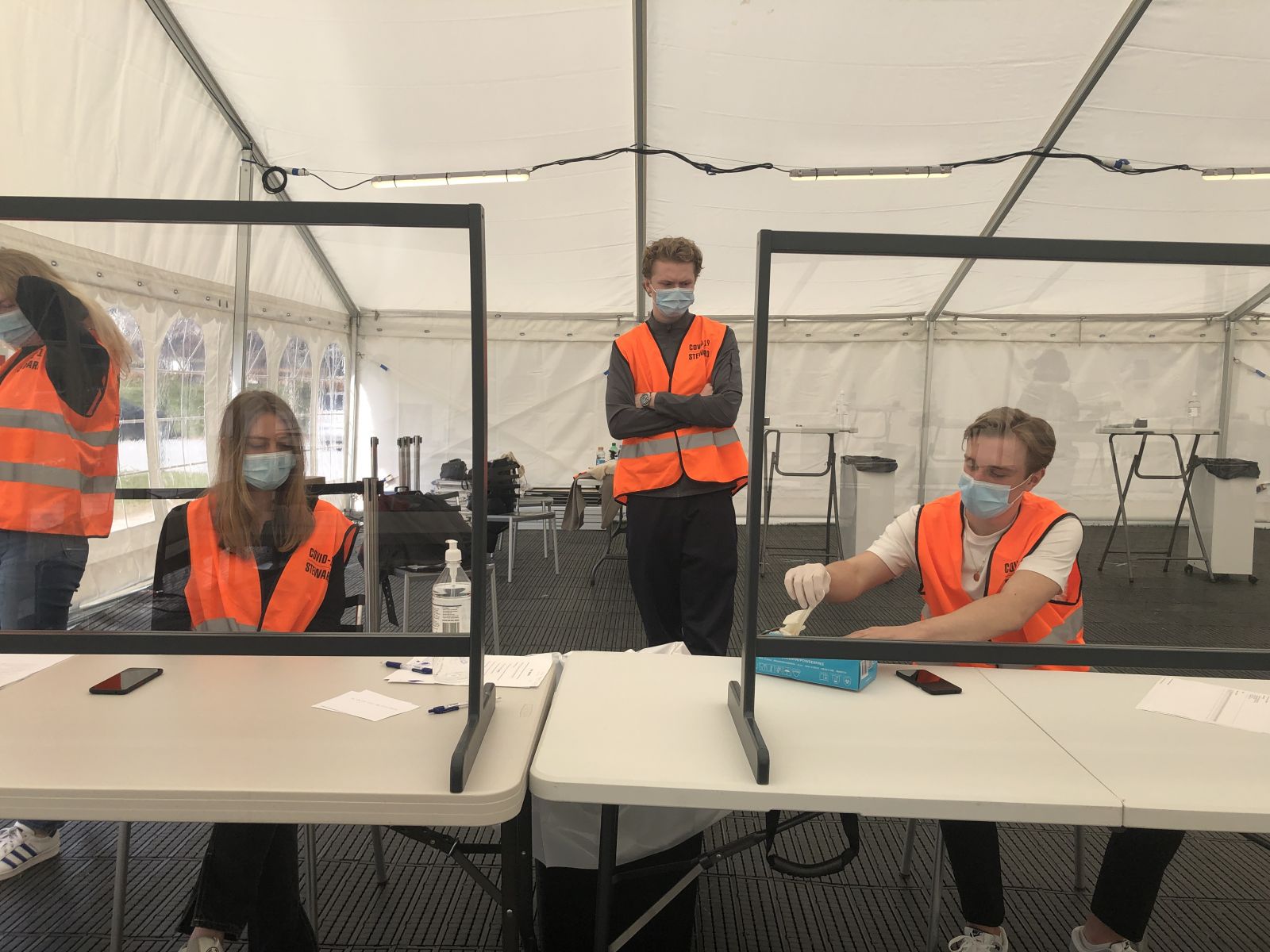
Laura Bech agrees and explains that studying from home is demotivating and distracting.
“I’m easily distracted at home. Then I make a cup of coffee or turn on the TV. I can’t do that here. I think I have done more studying today than I’ve done in two weeks,” she says.
Flexible and convenient
In the test center, René Steffensen and I are each guided to a table where a self-test kit is ready. A corona steward turns on an instruction video and guides us through the steps, which involve nasal swabbing two to three centimeters inside both nostrils.
After completing the test, René Steffensen and I wait outside the tent and within 15 minutes we both receive an SMS: The test is negative, and attached is a PDF file with the negative result, which works as an access card to CBS – or Copenhagen Zoo, for example.
“Every time I have taken the test, I have received the answer within 30 minutes,” says René Steffensen.
Allan Stockfleth Olsen adds:
“Every hour Copenhagen Medical send the test result to Sundhed.dk, but we have experienced that it often goes way faster than that. So if you need your corona passport it will be updated with the latest result.”
I experienced the whole self-test procedure as very flexible and easy, but René Steffensen suspects that getting the test done is somehow a barrier for some people and may explain why relatively few students have booked study seats and group rooms.
“If you are okay with studying from home, maybe that’s just easier. But it could also be that students who book the study seats and group rooms can get tested right around the corner from where they live,” says René Steffensen.
Amanda Andresen and Laura Bech do not see the test as a barrier – rather the opposite.
“It’s really comforting to know that everyone on campus has a negative test. Somehow, it makes me less nervous,” says Laura Bech.
Amanda Andresen adds:
“And it’s just very convenient that you can do the test here at CBS.”
A multi-purpose tent
The demand for all Danish universities to provide self-test facilities for students and staff members has been made by the Danish Agency for Science and Education as part of the reopening process. Therefore, CBS has spent DKK 600,000 on buying the 700-square-meter tent rather than renting it.
“We may well have to conduct tests in the autumn as well, and possibly until the summer of 2022. Moreover, the tent can be used for various occasions. Semester Start Party, conferences and large events,” explains René Steffensen.
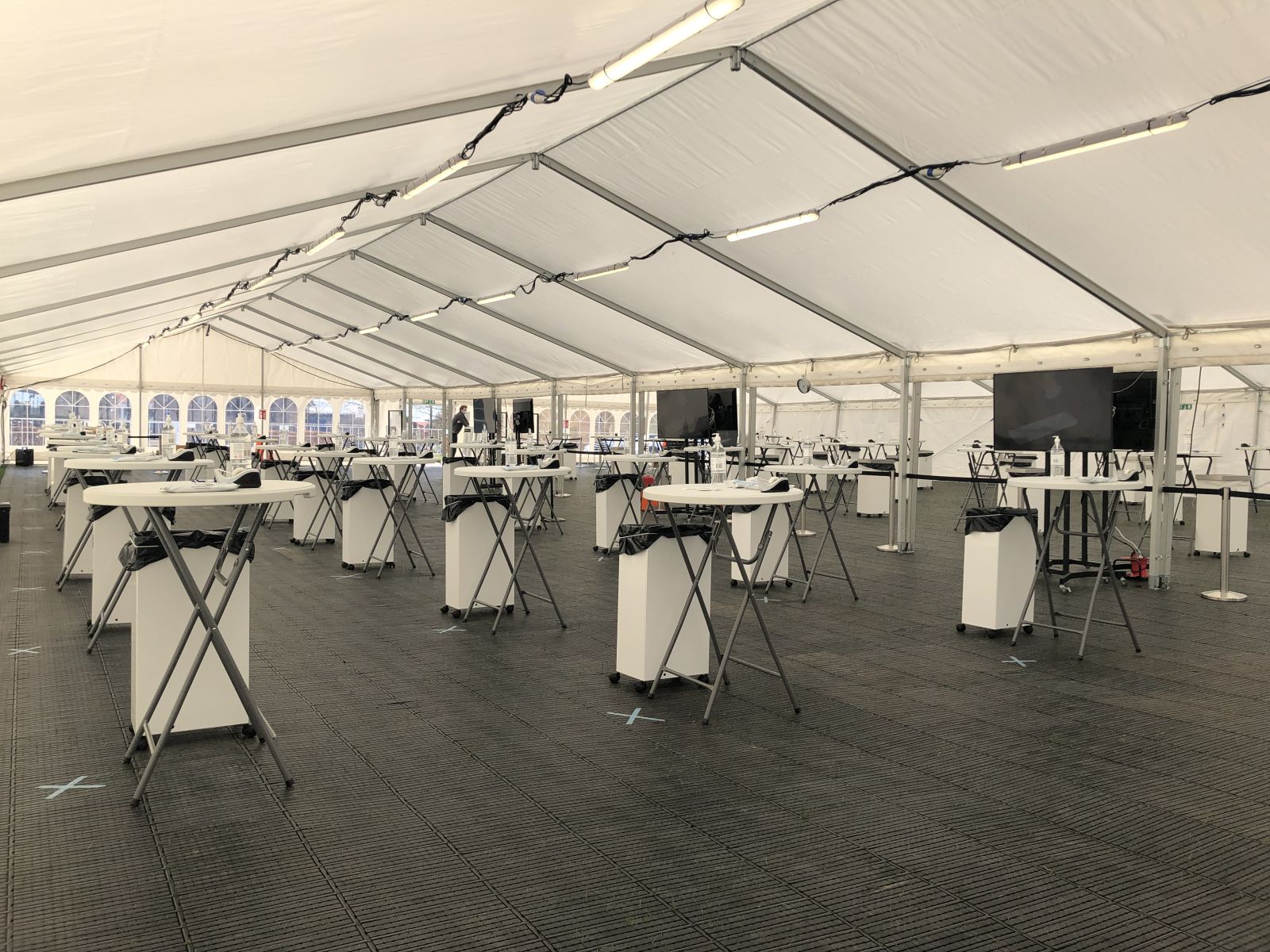
The IT infrastructure is delivered by the company Copenhagen Medical, while the Capital Region of Denmark delivers self-test kits.
“Running the test center is not cheap, and right now, we are waiting for a decision from the government on whether they want to refund the expenses. They did in the spring when we had to purchase extra cleaning and hand sanitizer,” explains René Steffensen, who is proud of what Campus Services has accomplished in terms of establishing the test center:
“This project shows that we have a grip on the situation, and we were able to make this happen fast. The government announced that we needed to have it up and running no later than April 21, and we opened on April 12,” he says.
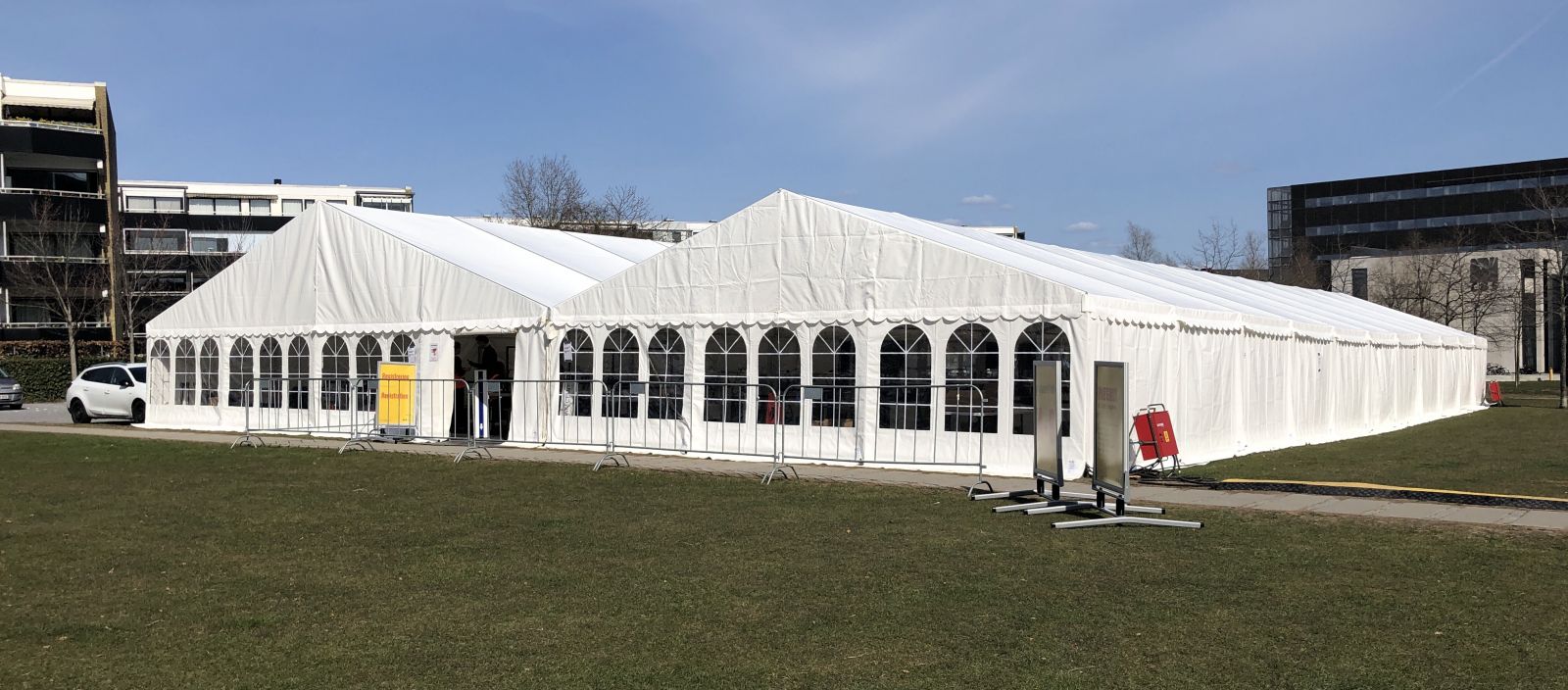



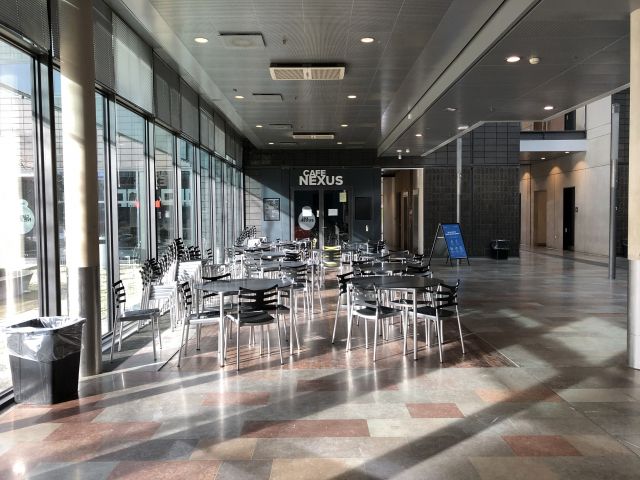
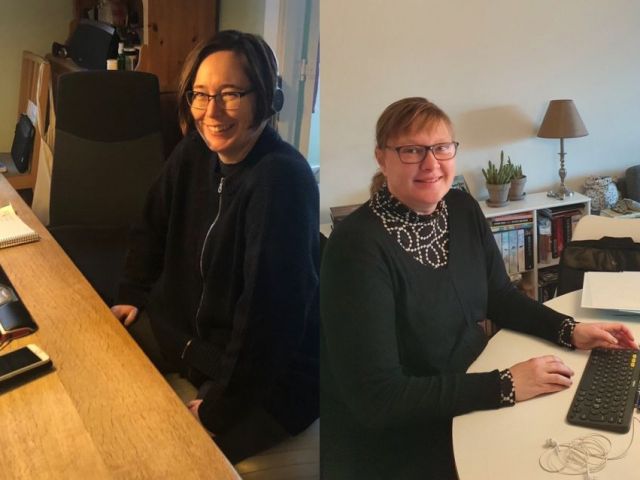
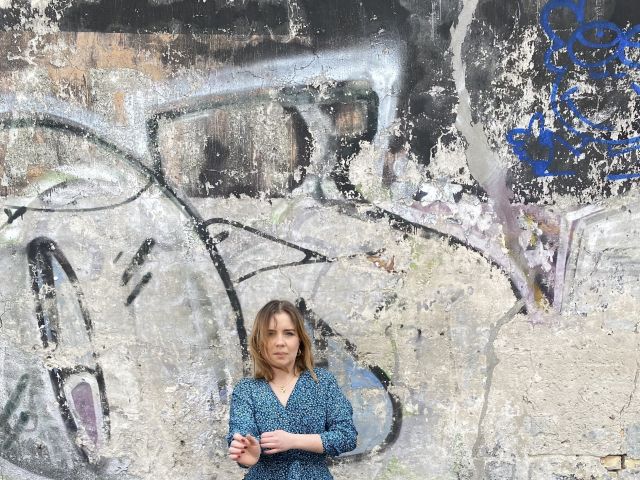

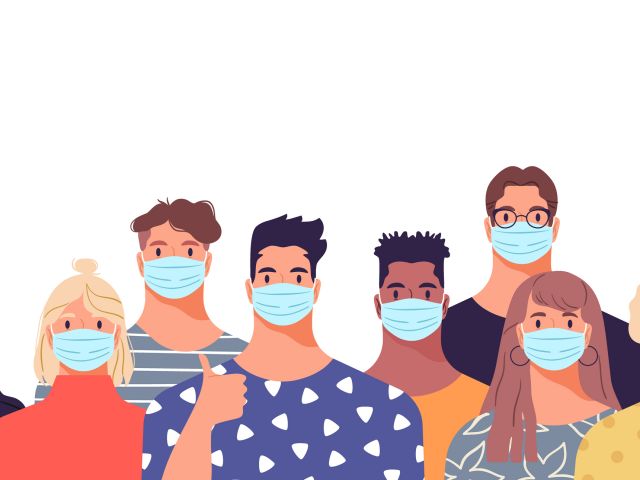
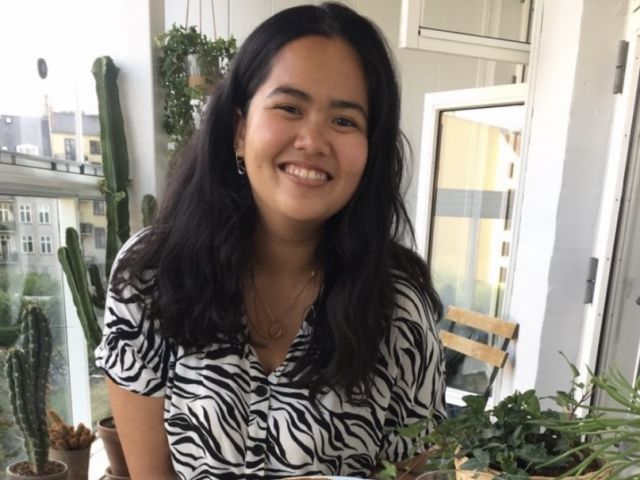




























































































































Comments